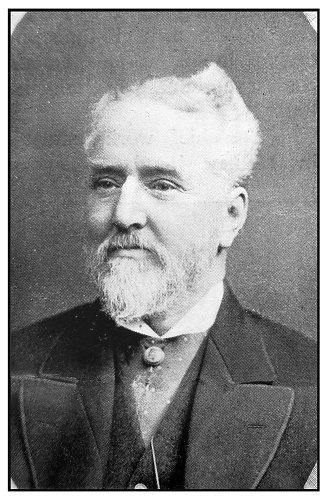| By their fifteenth year, orders from the UK and all over
the world were flowing in, so much so that at times it was
difficult to keep up with demand. Around 1900, the company
purchased a second factory on the corner of Church Lane and
Nelson Street, Wolverhampton.
In September 1907 James Gibbons Limited expressed an
interest in buying the Church Lane factory, which was sold to them in
October 1907 for £250.
By June 1906 Chromographic was extremely busy, so busy in
fact that the company had to refuse an order for 1,000
plates per week.
Another furnace was installed at Dudley Road in order to
increase production, and Cannon Industries doubled their
order for stove plates.
On 19th July, 1906, Chromographic purchased their Dudley
Road site for £1,000. It had previously been rented.
|

Mr. J. Woodhead who ran the company. |